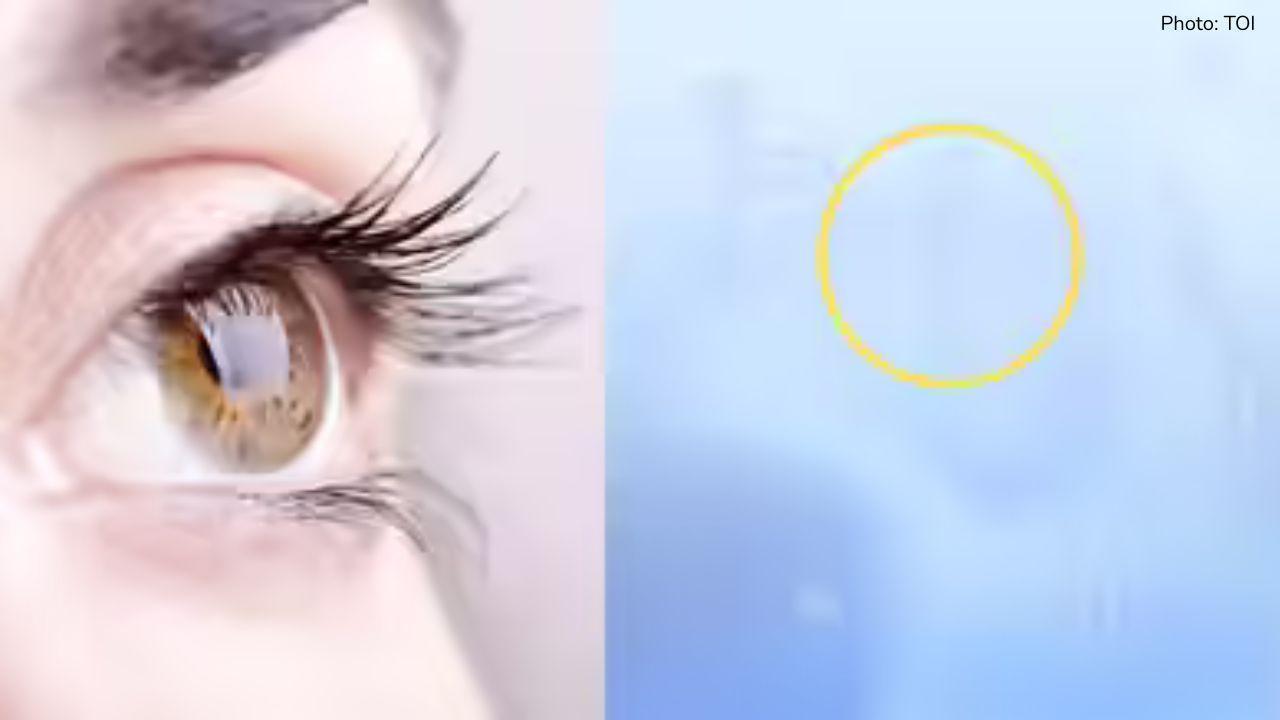You have not yet added any article to your bookmarks!

Join 10k+ people to get notified about new posts, news and tips.
Do not worry we don't spam!

Post by : Saif Rahman
Have you noticed drifting specks, cobweb-like threads or tiny shapes moving across your sight? These visual disturbances — commonly called "floaters" — affect many people at some point. While they are frequently benign, they can occasionally point to an underlying eye condition that needs evaluation.
Ophthalmologists stress that knowing why floaters appear helps protect vision and prompts timely treatment when necessary. As Dr. Meera Sood notes, "Floaters form when small pieces of cellular material or gel break away inside the eye and cast shadows on the retina. In most cases they do not threaten sight, especially if they develop gradually and do not reduce vision."
Common causes of spots in vision
Several factors can lead to the sensation of seeing spots:
Age-related changes: Over time the vitreous — the gel filling the eyeball — can liquefy and clump, producing floaters. This process is typical with ageing and is usually not dangerous.
Eye strain or fatigue: Long screen sessions, dim reading light or tiredness can make people more aware of existing floaters. Stress and exhaustion may also heighten their visibility.
Injuries or eye trauma: A blow to the eye may trigger sudden floaters or flashes. In such cases prompt medical assessment is recommended.
Eye diseases: Acute symptoms like a rapid rise in floaters, bright flashes or new visual shadows can indicate retinal tears, detachment or internal bleeding — all of which require urgent care to reduce the risk of vision loss.
Systemic health issues: Conditions such as diabetes or hypertension can affect eye health and produce visual disturbances. Regular medical and eye examinations help identify these problems early.
When to see a doctor
Most floaters are harmless, but seek immediate attention if you experience:
A sudden surge in the number of floaters
Bright flashes of light in your field of vision
A shadow or curtain moving across your peripheral vision
Persistent blurring or any unexplained loss of sight
Dr. Sood advises, "If you notice these warning signs, consult an ophthalmologist promptly. Early assessment can prevent serious outcomes and preserve vision."
How to care for your eyes
Simple daily measures help maintain eye health:
Follow the 20-20-20 rule: every 20 minutes look at something 20 feet away for 20 seconds to ease eye strain
Use sunglasses outdoors to block harmful UV light
Eat a balanced diet rich in vitamins A, C and E to support ocular health
Keep hydrated and prioritise sleep to reduce strain
Attend regular eye check-ups to detect problems early
Spots and floaters can be unsettling, yet most are a normal part of ageing or minor eye changes. However, sudden onset or accompanying warning signs demand prompt professional evaluation.
Your eyesight is precious; noticing changes early and maintaining regular care, a healthy lifestyle and timely doctor visits are key to keeping your vision clear.










Study Warns Using AI for Medical Advice Is ‘Dangerous’ as Users Get Inaccurate Health Guidance
A major new study reveals that artificial intelligence (AI) chatbots and tools may give misleading o

Top Sci-Fi Movies Streaming on Netflix This February: Must-Watch Picks for Genre Fans
A curated news-style guide to the best science fiction films currently available on Netflix in Febru

BCCI Central Contracts Shake-Up: Kohli, Rohit Moved to Grade B as Board Reshapes 2025–26 List
Virat Kohli and Rohit Sharma have been placed in Grade B in the BCCI’s 2025–26 central contract list

Dalal Street Spotlight: Top 10 Stocks Investors Are Watching as Markets Open on a High
Indian stock markets begin the week with strong momentum, and several blue-chip and mid-cap stocks a

Market Movers Today: Key Stocks Set To Watch In Indian Markets
Indian equity markets are poised for active trading as several major companies, including Bharti Air

Milan Welcomes the World: Inside the Grand Opening Ceremony of the 2026 Winter Olympics
The 2026 Winter Olympics opening ceremony in Milan marked a defining moment for global sport, blendi